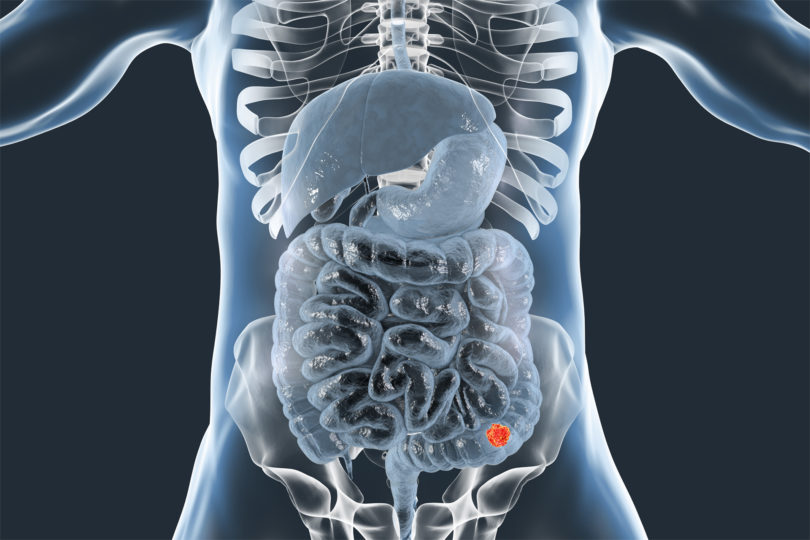March is National Colorectal Cancer Awareness Month – who knew?
Perhaps your Provider’s urging to get screened for colorectal cancer has been a source of embarrassment or even annoyance – I can’t tell you how many patients have told me “There’s NO WAY I am going to have a colonoscopy!”
Colorectal Cancer (CRC) is the 3rd most common cancer overall in America, the second leading cause of cancer death in men and women combined. About 1.5million men and women are currently living with a previous CRC diagnosis in the U.S. Close to 145,000 new cases will be diagnosed in 2020 and over 50,000 of those could die. Although most of these people will be older, the rates of CRC in those under 50 are increasing (especially rectal cancers).
CRC is largely preventable! With early detection, surgery alone is effective (84% of people with Stage I or II colon cancer) – the further advanced the cancer is, the more likely radiation and possibly chemotherapy will be required. Survival rates are 90% when found locally, >70% when it is still in the regional area and down to 14% if it is at stage IV.
Having said all that – how do you detect the cancer early? Often there are no visible symptoms. The answer is appropriate screening. What is debatable is “appropriate” … I have a patient who, in his mid-70s developed increasing diarrhea. He was not losing weight and didn’t feel badly, but was inactive and overweight, and drank several glasses of alcohol a day. With much encouragement, he did have a colonoscopy done – Stage I CRC was found and removed. He is cancer-free 5 years later.
If there is a genetic link (Lynch syndrome or Familial Adenomatous Polyposis, etc.) you might need screening as early as your 20s! If someone in your immediate family (parents, siblings or children) have had CRC you should be screened initially at age 40 or younger. You have 2-3x the risk! Another patient of mine had a sister with colon cancer, her mother and a sister with breast cancer and her father with skin cancer. She tested positive for genetic Lynch syndrome gene abnormalities. If you have had other cancer yourself, you might need screening early. African Americans (who have >20% higher risk and >40% higher mortality) should start screening at 45. If you have known ulcerative colitis, inflammatory bowel disease or Crohn’s disease, you should also get screened early (before age 45). The rest of us can usually wait until age 50 unless there are symptoms such as blood in the stool, fatigue with unexplained weight loss or a change in bowel habits.
Colonoscopy – at least once – is the gold standard. The ‘eyes-on” approach is 95% effective for larger adenomas (precancerous growths) and CRC. (Sigmoidoscopy looks at just the rectum and last part of the colon and is equally effective for that portion of the colon). This invasive screening should be done every 10 years to age 75. There are problems with these procedures – particularly in the elderly: perforated intestine, bleeding, anesthetic reactions, infection to name the primary issues. These are uncommon – about 2.8% of every 1000 procedures.
“But I don’t WANT to have a colonoscopy!” Okay, let’s consider doing a less invasive screening. Stool cards (smears of stool samples you collect at home on 3 separate occasions) are up to 70% sensitive. The FIT test is similar (a single sample obtained at home). The FIT-DNA (Cologuard as seen on TV) increases sensitivity to >90% and is almost twice as specific to CRC than other sources of bleeding. This test involves shipping your stool sample (obtained at home) to the company for analysis. These minimally invasive tests need to be repeated EVERY YEAR.
What about the “Natural Approach” to prevent CRC? Research is really mixed on almost everything! Whole fiber in food, Calcium and adequate Vitamin D, magnesium supplements for women (<400mg daily), eating fish (not supplements), and perhaps coffee and Vitamin B6 might help. Some recent research shows aspirin daily might be protective – but this carries risk as well; ask your Provider! The best bet is to live healthily – keep the weight under control, the alcohol intake minimal, eat a balanced high vegetable and fruit, whole fiber diet and keep active!
I believe the inconvenience of screening is worth the benefit! May 2020 find you healthy and screened for CRC!
